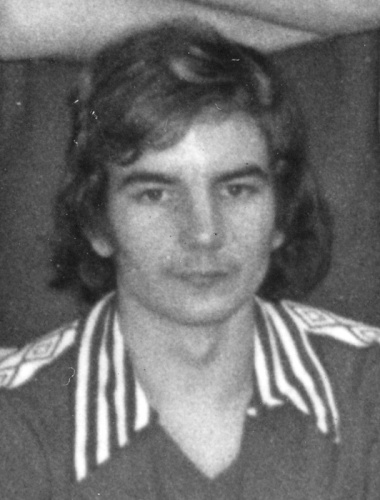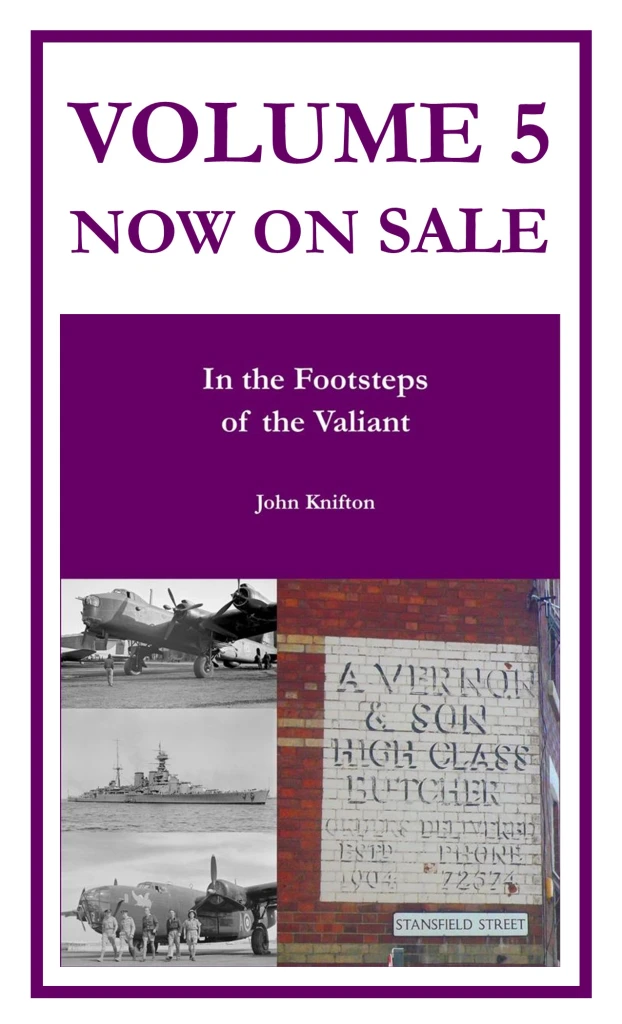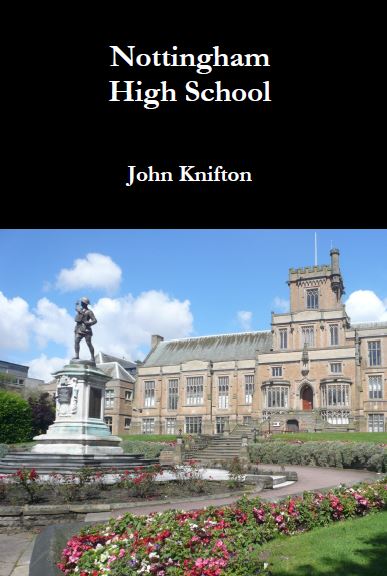Many, many years ago, in 1990, my friend and colleague, Simon Williams, interviewed Roy Henderson who was then one of the oldest Old Boys still alive. In due course, I transcribed the taped interview and added some extra explanatory details where this seemed helpful to the reader. This is the third section of an eventual five, all of which describe the High School just before the outbreak of the Great War, and then during the first few years of the conflict.
Prominent boys in the High School at this time included Lancelot Wilson Foster, who, in the 1930s, was to become a vicar in Cheshire, and then a chaplain in World War Two.
William Donald Willatt became the Vicar of St.Martin’s, Sherwood, and eventually lived in West Bridgford. Here is St.Martin’s:
Along with Roy Henderson, William Willatt was later to start a school magazine called “The Highvite”. By Roy’s own admission, it was “a pretty dreadful magazine”, and only survived because it was financed by a variety of different adverts. The enterprising boys went round to local companies such as Sisson & Parker, and many other businesses. As editor of the other school magazine, Harold Connop was furious at the new rival. Roy didn’t get on very well with him at all.
Harold Arno Connop, however, was a first class scholar and very good rugby player. He was a fine three quarter, and a very fast runner, but for one reason or another, which Roy was not willing to divulge, he was, supposedly, never particularly well liked in the school, and in general, was apparently not a very popular figure. This may not have been totally unconnected, however, with Harold’s rare combination of outstanding academic prowess, and humble origins. His father was a mere Elementary School teacher, and Harold’s education throughout his time at the High School was entirely financed by his being both a Sir Thomas White Scholar, and a Foundation Scholar.
Harold eventually joined the Royal Naval Air Service, where he became a Lieutenant. He would not survive the conflict and was to die of his wounds on March 31st 1918. Here he is, resplendent in his uniform:
Percival Henry Biddulph Furley always used to sit next to Henderson in the Classical Sixth. He was one of Deputy Headmaster Sammy Corner’s favourites. In actual fact, despite being well over sixty years of age, Mr Corner was to leave his post as Form Master of 5b to go to the Great War. Here is Mr Corner, showing the School Charter to interested parents on the occasion of the school’s 400th anniversary in 1913:
As a teacher, Mr Corner was famous for how easily he could be diverted from the work in hand. Anybody just had to get him started off on an interesting subject, especially in Scripture lessons, and the class would then seldom, if ever, have to return to what they were supposed to be doing. Percival Furley, for some unknown reason, was always nicknamed “Dab”. He was a member of the First Eleven at cricket for three years. His other claim to fame was his talent in school plays. At this time, all the female parts were taken by boys. Given his youthful good looks, “Dab” could always be made up into a very good looking lady or girl! When he left the High School, “Dab” joined the Army. He was eventually to be killed in a skirmish with some lashkars at Miranshah, in the North West Province of India, in June 1919. Here is the official account of that short rehearsal for our recent war in Afghanistan:
And here is Miranshah today, now that it is running its own affairs:
According to Roy Henderson. the younger of the two Boyd brothers, John Hardy Boyd, was the best athlete in the school. He was captain of the school cricket team and of the Officer Training Corps. His elder brother, Charles Gordon Boyd, had been the school’s wicketkeeper, and had represented the school at football from 1910-1912. He was killed on May 3rd 1917, while serving as a Second Lieutenant in the 9th Battalion of the Leicestershire Regiment.
Allan Roy Stewart Grant was the son of a Presbyterian minister. For some subtle reason, possibly connected with his initials, he was always nicknamed “Pongy”. Thomas Wright was quite a good bowler, as was Daft, the grandson of the famous Nottinghamshire cricketer. Other cricketers included Francis Arthur Bird and James Wilcox, and Roy was himself one of the better bowlers and batsmen. The school cricket coach at this time was, of course, Mr A.G.Onion, seen here, perhaps, in his later years:
In one year, Roy was the school Fives champion. In the year before this, it had been Donald Clarkson, who was to become that most vulnerable rank of officers, a Second Lieutenant, killed on August 9th 1918 with the 1/6th Sherwood Foresters. “Pug” Clarkson lived only a street away from where I am now writing, at 52, Caledon Road, Sherwood.
Other school Fives champions included Victor Guy Willatt and his brother, William Donald Willatt. William Norman Hoyte, the Captain of Mellers House was also a very fine athlete, as was Sidney Charles Trease. The latter was to become a Second Lieutenant in the 11th Scottish Rifles. He went missing on September 19th 1918 at the age of only nineteen. He was the beloved son of George and Annie Trease, of 85, Waterloo Crescent, within just a couple of minutes’ walk of the school. His death came in a fairly pointless campaign in Greece and is commemorated on the Doiran Memorial.
The School was converted to rugby by Mr Kennard. He had the unfortunate habit with smaller boys of pulling them close and then tugging their hair very hard. It was extremely painful! There was no real reaction on the part of the boys to the change of sports from soccer to rugby. They just did as they were told.
Roy played as goalkeeper for the school on several occasions. He once let in eight goals against Trent College, and towards the end of the game he became what was probably the first player ever to be substituted in the history of school football, when he was replaced in goal by Donald Clarkson.
At the time, boys who represented the school were awarded ornate colour caps.
This article will be continued in the near future.





































































